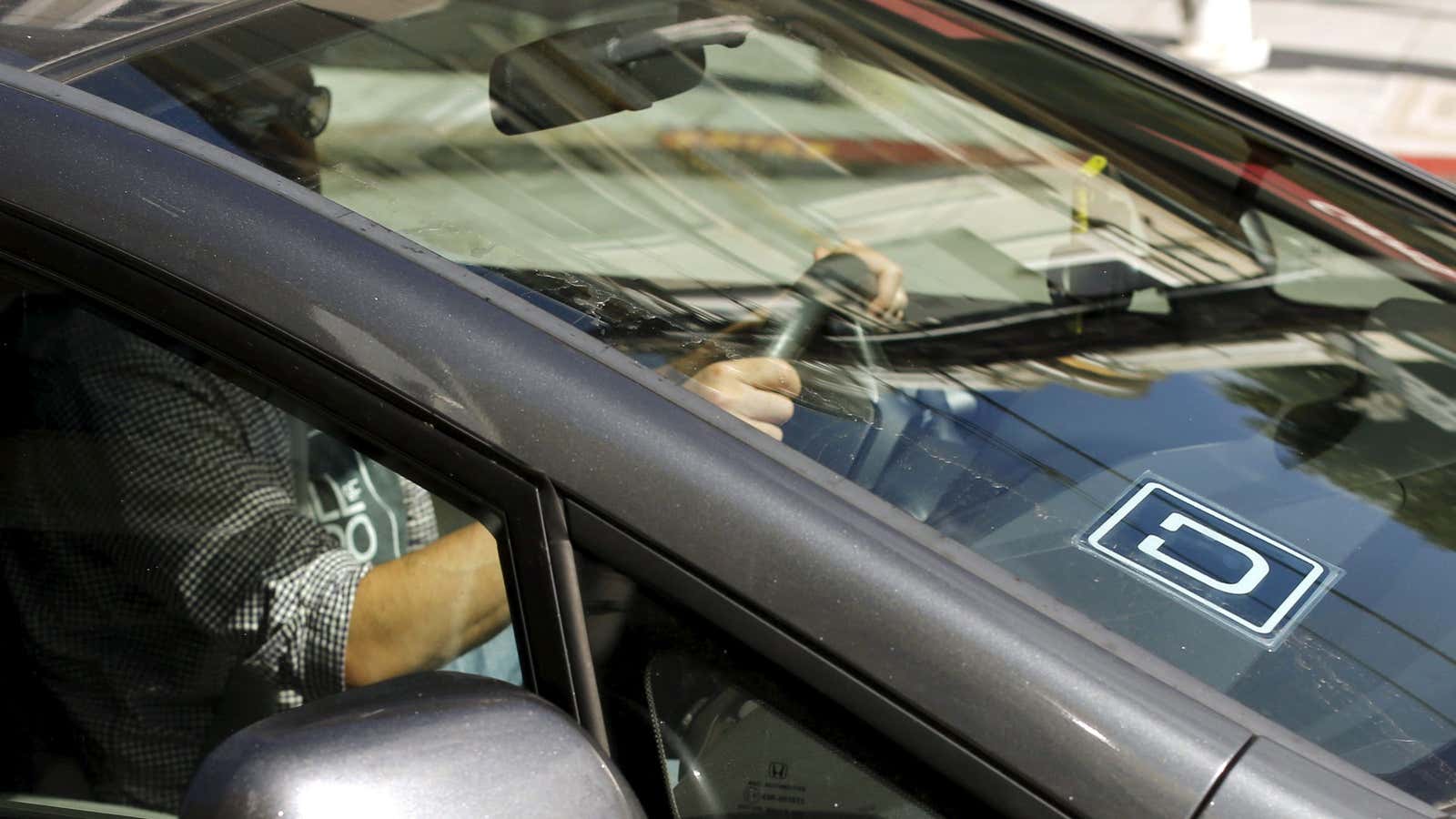A federal judge has ruled that Uber drivers in California can sue the mobile car service provider as a group for denying them the full benefits of employment.
The company considers the drivers who use its platform to be independent contractors. But four drivers who brought this suit say that they are effectively employees of the private firm, which has been reportedly valued at $50 billion by venture capital investors, and are retroactively due additional pay and protections.
Today’s ruling (pdf) by judge Edward Chen concludes that the employment situation of Uber drivers is “sufficiently similar” that his court can weigh whether they are truly employees en masse. The group will include, out of a maximum estimated class of 160,000 drivers, mostly those who worked for the company directly between August 2009 and June 2014, when Uber changed its contracts so that drivers ceded their right to a trial in favor of arbitration unless they opted out.
Uber estimates the number of eligible drivers at less than 15,000, and “only a few hundred” who are still active on their platform.
“While we are not surprised by this Court’s ruling, we are pleased that it has decided to certify only a tiny fraction of the class that the plaintiffs were seeking,” an Uber spokesperson said in a statement, noting that one of the named plaintiffs will be excluded. “That said, we’ll most likely appeal the decision as partners use Uber on their own terms, and there really is no typical driver—the key question at issue.”
The company has said in the past that many if not most of their drivers use their platform in ways that aren’t akin to full employment, either for less than 15 hours a week or in concert with other driving platforms. But Chen found a contradiction in Uber’s positions:
According to Uber, both its right of control over its drivers, as well as the day-today reality of its relationship with them, are not sufficiently uniform across the proposed class to satisfy the requirements…[H]owever, there is inherent tension between this argument and Uber’s position on the merits: on one hand, Uber argues that it has properly classified every single driver as an independent contractor; on the other, Uber argues that individual issues with respect to each driver’s “unique” relationship with Uber so predominate that this Court (unlike, apparently, Uber itself) cannot make a classwide determination of its drivers’ proper job classification. .. It appears that at least one of these arguments cannot be entirely accurate, and for the purposes of resolving this motion the Court concludes that a number of Uber’s class certification arguments are problematic.
If the drivers eventually win the lawsuit, Uber would likely to have to begin paying additional benefits and obeying stricter labor rules across the United States. And the upfront costs could be huge: A similar suit against FedEx led to a $228 million settlement that is now awaiting judicial approval from none other than Chen, the same judge hearing the Uber case.
A loss in court would put a damper on Uber’s massive valuation and force it to either cut its margins or hike prices. But it may not be an existential threat: Financials leaked to Gawker earlier this month suggested the fast-growing company lost $108 million in the second quarter of 2014, but it also reported a $1.6 billion cash pile.
Some argue that Uber drivers don’t fit neatly in the old definitions of full-time employee and private contractor. But so far, the regulatory system has not been kind to that stance. A California labor official ruled that one Uber driver was an employee, not a contractor, and thus due back-wages, earlier this year.




